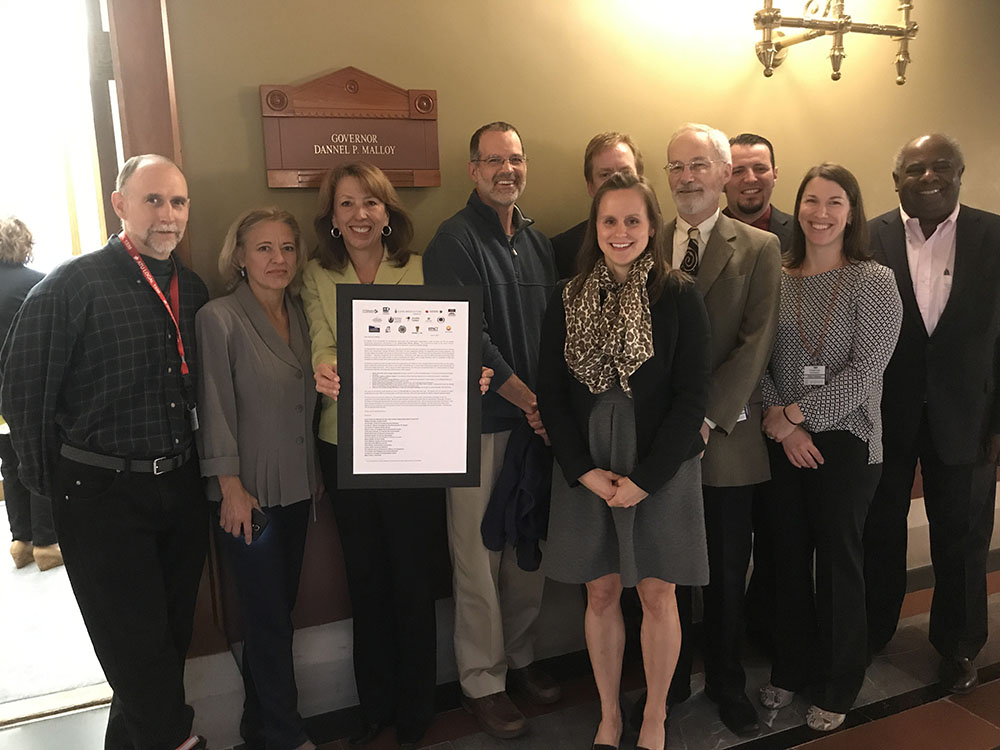
The guest blogger is a Registered Nurse and the Environmental Health Coordinator for the Connecticut Nurses' Association.
Normally nurses don't get involved in energy policy, but here in Connecticut, the Connecticut Nurses' Association (CNA) recognizes that nurses are key advocates for reducing greenhouse gas emissions and promoting more renewable energy. Why? Because the rise in greenhouse gas emissions from the healthcare sector, power plants, transportation, and burning of fossil fuels contributes to a changing climate and the health impacts associated with it.
That's why I was proud that CNA was among the 20 organizations that stopped by Governor Malloy's office on June 6th to deliver a thank you letter applauding him for his leadership in signing on Connecticut (along with Governors from other states) to the Climate Alliance. At that time, we also urged him to support six other proposals that will help the state shift to renewable sources of energy–and protect health!
The Climate Alliance is a newly formed group of states and large corporations that are committed to taking bold action to reduce greenhouse gas emissions in the absence of federal leadership and in light of the recent Trump administration decision to pull the United States out of the Paris Climate Accord. I was proud to learn that Governor Malloy was the fourth Governor to sign on to the Alliance, and believe that nurses can have a critical role in advocating for policies that protect public health, including those that are not traditionally areas that we work on. I was pleased to make a statement in Clean Water Action's press release and to have CNA as a signatory on the letter.
Nurses continue to be the most trusted profession and we know that climate change is the most pressing public health issue of our time. According to the U.S. Global Change Research Program's report, "every American is vulnerable to the health impacts associated with climate change." Here in Connecticut, we are already experiencing more extreme weather patterns, more extreme heat days that are linked to cardiovascular events and death, heat stress, and dehydration. There are also more frequent poor air quality days leading to asthma, COPD, and allergy flare-ups, and an increase in vector borne diseases from mosquitoes and ticks.
In my role as the Environmental Health Coordinator at CNA, I work to educate nurses on environmental issues that impact health. There is no more pressing issue than advocating for shifting away from the use of fossil fuels so that we can protect the health of the public.


